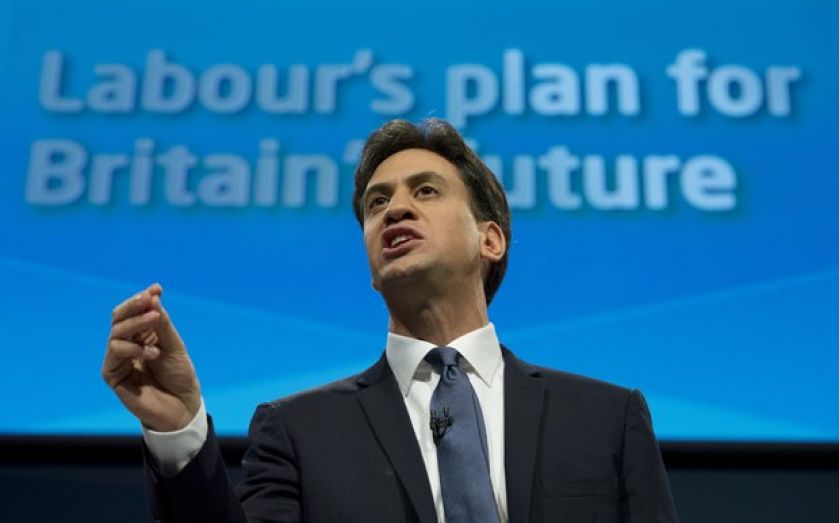Name-dropping won’t cut it: Miliband must do more to rouse his party

Colin, Gareth, Elizabeth, the two young women in the local park… it sounds like the beginning of that song by The Beautiful South, which is apt, given the track was called Song for Whoever. Instead, the names were part of a list of people Ed Miliband has recently met in the street, trotted out yesterday in his last big speech before the general election next year.
The speech – at the Labour party conference – and the promises within, Miliband said, were for the nurses and public sector workers, the IT guys like Gareth (who voted Lib Dem at the last election), the young Benedict Cumberbatch fans, and the self-employed people struggling to make ends meet. Business big and small, but particularly the former, will have come away disappointed.
At times it was a bit tragic, like the music Miliband entered the hall to, which had more than a touch of a 1996 techno throwback to it. Perhaps he was seeking to lift the flat mood that has lulled Labour’s conference into a semi-stupor thus far, by harking back to 1997, when the party was on the cusp of victory. Maybe someone pressed the wrong button.
There was some meat in the speech, which at times was funny, lighthearted and endearing, and at others stilted, recycled and a bit phoney. But the “man I met on the street” anecdotes, which seemed to make up at least half of it, only served to make the Labour leader look more out of touch. This is a shame, because Miliband is impressive in person.
As the members of the audience who had been sat behind him on the stage filed out of a side door, nobody was stopping to talk. One audience member nervously looked around before apologising; No, she wouldn’t be able to comment she said, adding: “I’m just rushing off to get… um, to an event”. Others around her bowed their heads and quickened their pace. Where was the euphoria? The excited chatter of a party about to become a government? It certainly wasn’t on the faces of the Labour faithful leaving the hall in Manchester, who had perhaps hoped for a repeat of last year’s success with the energy price freeze.
The big clap moments came from promises to break up the banks, tax those who own expensive homes, and introduce a new levy on tobacco companies. Miliband sought to woo voters with the promise of building the future together. The vote would be given to 16 and 17-year-olds, he said, building on the momentum of the Scottish referendum and perhaps winning a wry smile from Alex Salmond. Yet he stopped short when it came to devolution and English votes for English MPs. And the section on Europe was shaky at best. A key part of the speech on reducing the deficit, pre-briefed to journalists, was cut out at the last minute.
If Miliband hopes his offering will dominate headlines for weeks and put David Cameron on the back foot like last year, he will be disappointed. It was a safe speech, bold neither in rhetoric nor the policies pledged. If Labour’s leader isn’t careful, he really will end up speaking just to whoever he comes across in the local park, and that won’t be enough to win convincingly in next year’s general election.